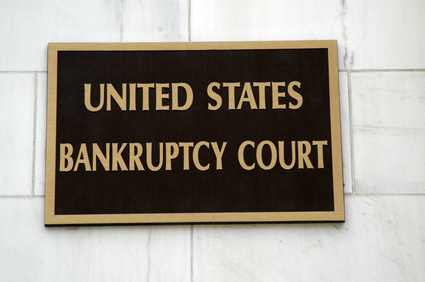The Kentucky Supreme Court recently ruled that a debt buying company may not charge or collect statutory interest under section 360.010 of the Kentucky Revised Statutes on an account it acquired after it was charged off by the original creditor. Carol Harrell’s credit card account was charged off by the original creditor on Jan. 18, 2011 and was sold to a debt buying company in November of the same year. In a collection lawsuit brought in April 2012, the debt buying company sought judgment for the charged-off balance plus statutory interest from the date of charge off. In response, Harrell…
In an unreported ruling, the Eleventh Circuit Court of Appeals recently affirmed the dismissal of a borrower’s federal Real Estate Settlement Procedures Act (RESPA) claim that the mortgage servicer failed to confirm receipt of the plaintiff’s request for information because the servicer’s signed certified mail receipt qualified as confirmation of receipt under the statute. Importantly, the Eleventh Circuit also held that the plaintiff’s RESPA claim for statutory damages failed to allege an injury in fact under Spokeo. A copy of the opinion in Meeks v. Ocwen Loan Servicing LLC is available at: Link to Opinion. A borrower’s attorney sent the…
The Appellate Court of Illinois, Second District, recently affirmed summary judgment in favor of a mortgagee that failed to meet the FHA requirement to either have a face-to-face meeting with the borrowers or to make “a reasonable effort” to arrange a face-to-face meeting before filing foreclosure, because doing so would have been a futile act after the borrowers’ mortgage loan debt was discharged in bankruptcy and they did not reaffirm the debt. A copy of the opinion in PNC Bank National Ass’n v. Wilson is available at: Link to Opinion. A mortgagee initiated a foreclosure action against borrowers based upon…
11th Cir. Holds CAFA’s ‘Local Controversy’ Exception Does Not Preclude Federal-Question Jurisdiction

The U.S. Court of Appeals for the Eleventh Circuit recently held that the federal Class Action Fairness Act’s (CAFA) local-controversy provision, 28 U.S.C. § 1332(d)(4), does not preclude a federal trial court from exercising federal-question jurisdiction. Accordingly, the Eleventh Circuit affirmed the federal trial court’s denial of the plaintiffs’ motion to remand the matter to state court following the defendants’ removal. A copy of the opinion in Blevins v. Aksut is available at: Link to Opinion. The litigation involved a defendant doctor’s alleged performance of unnecessary heart procedures on the plaintiffs. Specifically, the plaintiffs alleged that the defendant doctor would…
The U.S. Court of Appeals for the Sixth Circuit recently held that a bankruptcy trustee seeking to recover fraudulent transfers could recover direct and indirect loan repayments made after the bank had knowledge of the debtor’s Ponzi scheme, but could not recover deposits not applied to pay back the bank’s debt because the bank was not a “transferee” under the Bankruptcy Code as to ordinary bank deposits. A copy of the opinion in Meoli v. The Huntington National Bank is available at: Link to Opinion. The principal of two bankrupt companies orchestrated a Ponzi scheme in which he fabricated invoices…
In a data breach putative class action, the U.S. Court of Appeals for the Eighth Circuit recently held that the trial court had not conducted the required “rigorous analysis” of Federal Rule of Civil Procedure 23(a)’s class certification prerequisites when certifying the settlement class or when evaluating arguments raised by class objectors. Additionally, the Eighth Circuit also reversed the trial court’s ruling on the amount of the appeal bond, holding that an appellate bond should not include costs associated with delays in administering a class action settlement while the matter was on appeal. A copy of the opinion in Jim…
The U.S. Court of Appeals for the Fifth Circuit recently held that a group of plaintiffs plausibly alleged claims for violations of the federal Equal Credit Opportunity Act by asserting that a mortgage lender refused to consider their Section 8 income in assessing their creditworthiness as mortgage applicants, and that they received mortgage loans on less favorable terms and in lesser amounts than they would have had their Section 8 income been considered. Additionally, the Fifth Circuit held that the ECOA does not encompass mortgage purchasers and investors who do not participate in the extension of mortgage loans, even when…
The Ninth Circuit Court of Appeals rejected a class action settlement as “worthless” for absent class members in a recent federal Fair Debt Collection Practices Act case. The decision represents another addition to the growing list of FDCPA and other consumer-related class action settlements facing tough scrutiny where absent class members receive minimal or no monetary relief in proportion to their release of future claims, while class representatives and their counsel receive handsome rewards. A copy of the opinion in Koby v. ARS National Services, Inc. is available at: Link to Opinion. The case arose from a voicemail message seeking…
Fla. App. Court (3rd DCA) Holds Non-English Speakers Could Not Avoid English Language Contract Terms

The Third District Court of Appeal of the State of Florida recently reversed a trial court’s denial of a car dealership’s motion to compel arbitration, holding that because there was no evidence that the buyers, who did not read or speak English, attempted to learn or have explained to them what they were signing, or that the dealer’s representatives prevented them from doing so or misrepresented the terms, the trial court erred by finding there was no valid agreement to arbitrate. A copy of the opinion in Kendall Imports, LLC v. Diaz, et al. is available at: Link to Opinion.…
In a case involving allegations that a bank employer violated state and federal laws by not allowing an employee to work remotely from home when she became pregnant, the U.S. Court of Appeals for the Second Circuit recently vacated in part the trial court’s judgment adopting the jury’s verdict in the bank’s favor and the trial court’s disqualification order in the bank’s favor, and dismissed the appeal in part as to the employee’s claim under the New York State Human Rights Law (NYSHRL), remanding for further proceedings. A copy of the opinion in Sheng v. M&TBank Corporation is available at:…
The Third District Court of Appeal of the State of Florida recently reversed a summary judgment award in favor of two noteholders seeking a deficiency judgment against the note guarantors who were not joined in a prior foreclosure action as to the collateral, holding that: (a) the guarantors were not estopped from challenging the amounts of the deficiency judgments in a later action at law on their guaranties; and (b) equitable defenses that could have been raised in a mortgage foreclosure action seeking a deficiency can also be raised in a later action against the guarantors to collect the deficiency.…
The United States Bankruptcy Court for the Eastern District of Michigan recently allowed a debtor to modify his confirmed Chapter 13 plan based upon a mistake by the debtor’s counsel. The result of the modification was to reduce the plan to 36 months from 60 and reduce the repayment to unsecured creditors by 80 percent. A copy of In re Luman is available at: Link to Opinion. The debtor identified having total unsecured debt of $84,543.08 and mistakenly proposed a plan to pay these unsecured creditors $5,000 over 60 months. However, the Bankruptcy Code would have required a 36-month plan…










